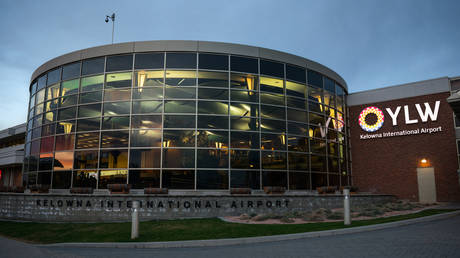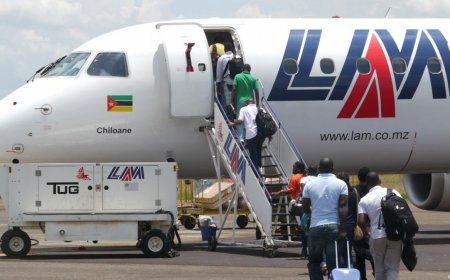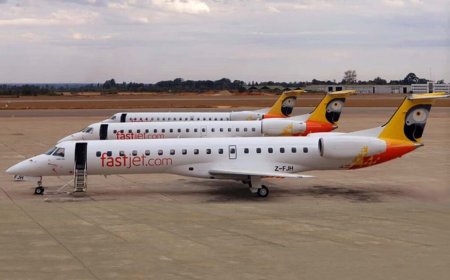LAM’s Monopoly Nearing Its End as Three Airlines Eye Mozambique’s Aviation Market
The long-standing dominance of Mozambique Airlines (LAM) may soon come to an end, as three foreign carriers have expressed interest in entering the country's aviation market. This potential shake-up comes at a time when LAM is struggling with deep financial woes, deteriorating service quality, corruption allegations, and growing passenger dissatisfaction. The arrival of new players could break the state-owned airline’s monopoly and introduce long-overdue competition in a sector desperate for efficiency and reliability.

The President of Mozambique’s Civil Aviation Institute (IACM), Commander João de Abreu, confirmed to TORRE.News that discussions are underway, although still in early stages. While declining to name the interested carriers, he emphasized that they are reputable airlines with solid track records in the global aviation industry.
“The process is being carefully analyzed until it gains substance and evolves into a concrete proposal,” Abreu stated, adding that the entry of new operators could provide much-needed alternatives for Mozambican passengers who have long endured subpar services from LAM.
The national carrier has come under fire for persistent flight delays, last-minute cancellations, baggage mismanagement, and a shrinking fleet of operational aircraft. The situation has been further exacerbated by recent reports of an extortion scheme, where passengers are allegedly forced to pay between 500 and 1,000 meticais to ensure their luggage is transported on the same flight.
Since 2022, LAM has been in a state of technical insolvency. In a desperate bid to prevent its complete collapse, the Mozambican government offloaded 91% of the airline’s shares to three state-owned entities: Portos e Caminhos de Ferro de Moçambique, Hidroeléctrica de Cahora Bassa, and insurance provider EMOSE. The aim was to raise $130 million to recapitalize the struggling carrier. However, despite the partial privatization effort, LAM’s service quality remains largely unimproved, leaving both passengers and businesses frustrated.
The airline’s inefficiencies have been particularly damaging to the business community, with companies citing significant losses due to LAM’s unreliable operations. Mozambique’s aviation sector holds strong growth potential, and the introduction of new operators could foster a more competitive market, improve service standards, and create job opportunities in the industry.
As negotiations move forward, Mozambican travelers remain without alternatives, forced to endure LAM’s ongoing operational challenges. The future of the country’s aviation industry will largely depend on how effectively regulators and policymakers facilitate market liberalization and ensure that increased competition translates into real benefits for consumers.





















